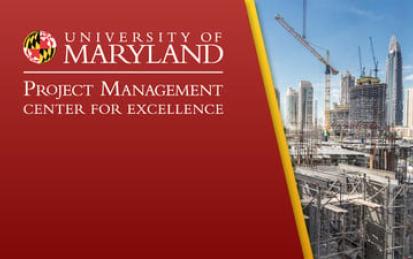

Our Courses

Wood Science: Beyond Building
The central question of this course: “why study wood?” If “why study wood” is the question, one answer would be that it is the only raw material available to us that is truly renewable in human life span terms. Wood is as important to society today as it ever was, despite the development of many man-made substitute materials, changing resource availability, and the changing needs of society.
-
Course by

-
 Self Paced
Self Paced
-
 11 hours
11 hours
-
 English
English

Financing and Investing in Infrastructure
Learn how debt and equity can be used to finance infrastructure investments and how investors approach infrastructure investments! According to the OECD, the global infrastructure investment requirement by 2030 for transport, electricity generation, transmission & distribution, and water & telecommunications totals to 71 trillion dollars. This figure represents about 3.5% of the annual World GDP from 2007 to 2030. The European Commission estimated, that by 2020, Europe will need between 1.5 - 2 trillion Euros in infrastructure investments.
-
Course by

-
 Self Paced
Self Paced
-
 11 hours
11 hours
-
 English
English

Software Construction: Object-Oriented Design
Learn how to design large software systems that solve real-world problems using object-oriented design techniques.
-
Course by

-
 English
English

One Health: A Ten-Thousand-Year-Old View into the Future
Learn to see the connections between human, animal, and environmental. Understanding these connections allows us to approach challenges in a holistic and constructionist approach and address problems at their root causes rather than treating their outcomes.
-
Course by

-
 Self Paced
Self Paced
-
 30
30
-
 English
English

Pathways to Exploring and Understanding One Health Connections
This course will present several “Wicked Problems” and explore them from a One Health approach. This process will help students see how using a multi-disciplinary, cross cultural approach to understanding the root causes of these issues supports a construction of resilient and sustainable solutions.
-
Course by

-
 Self Paced
Self Paced
-
 30
30
-
 English
English

Introduction to psychology of personality
Study the main themes and methodological aspects of personality psychology, and focus on the role of the cognitive processes involved in the construction of personality
-
Course by

-
 Self Paced
Self Paced
-
 11
11
-
 English
English

Data Science for Construction, Architecture and Engineering
This course introduces data science skills targeting applications in the design, construction, and operations of buildings. You will learn practical coding within this context with an emphasis on basic Python programming and the Pandas library.
-
Course by

-
 5
5
-
 English
English

The Industry and Profession in Construction Management
Learn the different sectors of the industry and the profession by looking at the nature of the industry, future trends, and opportunities. Understand the different sectors of the industry and the role of each participant, specifically the Owner, Designer, and Construction Manager.
-
Course by

-
 Self Paced
Self Paced
-
 10
10
-
 English
English

Project Delivery Methods and Contracts in Construction Management
Learn how to deliver across the lifecycle from first concept to occupancy, including the role of the Construction Management professional during the design process and review of the different project delivery methods.
-
Course by

-
 Self Paced
Self Paced
-
 13
13
-
 English
English

Field Operations and Administrative Tools in Construction Management
Learn the Construction Management tools needed to manage the people and the project, including estimating and scheduling. These tools combined with methods of control will ensure effective feedback and create a powerful system for delivery on-schedule and under budget.
-
Course by

-
 Self Paced
Self Paced
-
 13
13
-
 English
English

Sustainable Construction Management
Learn Sustainable Construction Management practices, and how to implement a sustainable green project. Sustainability has become essential for private and public owners who want to incorporate the economic, social, and environmental aspects of their project to improve the triple bottom line.
-
Course by

-
 Self Paced
Self Paced
-
 15
15
-
 English
English

Virtual Building Design for Engineers Using Autodesk Revit
This course is a beginners guide to Autodesk Revit software. Students will learn the fundamentals of Autodesk Revit’s functionality and how Design Professionals and Project Teams use Autodesk Revit-centric and BIM-centric workflows for design and construction optimization, coordination, visualization, and automation.
-
Course by

-
 Self Paced
Self Paced
-
 10
10
-
 English
English

Equity Portfolio Management
Develop core competencies in portfolio management, including portfolio construction and performance measurement.
-
Course by

-
 Self Paced
Self Paced
-
 English
English

Introduction to Power Semiconductor Switches
This course can also be taken for academic credit as ECEA 5721, part of CU Boulder’s Master of Science in Electrical Engineering. This course is primarily aimed at first year graduate students interested in engineering or science, along with professionals with an interest in power electronics and semiconductor devices . It is the first course in the "Semiconductor Power Device" specialization that focusses on diodes, MOSFETs, IGBT but also covers legacy devices (BJTs, Thyristors and TRIACS) as well as state-of-the-art devices such as silicon carbide (SiC) Schottky diodes and MOSFETs as well
-
Course by

-
 Self Paced
Self Paced
-
 10 hours
10 hours
-
 English
English

Software Construction: Data Abstraction
Learn powerful data abstraction and decomposition techniques to build large, complex programs.
-
Course by

-
 English
English

Chemerinsky on Constitutional Law - The Structure of Government
This course will highlight the construction and interpretation of the U.S. Constitution through the centuries.
-
Course by

-
 Self Paced
Self Paced
-
 English
English

Engineering of Structures: Response of Structures
This course explores the impact of different forces on the construction of bug buildings. It provides an overall understanding of how buildings respond to different forces that impact their designs. The first module introduces you to the concept of the overall response of structures. The second module explores different types of loads and their impact on the design of large structures. It also gives a detailed explanation of how buildings fall due to earthquakes. In addition, the module offers an explanation on the impact of mass and stiffness on building response.
-
Course by

-
 Self Paced
Self Paced
-
 16 hours
16 hours
-
 English
English

Sustainable Transportation Networks and Streetscapes
This course will evaluate best practices in transportation networks, thoroughfares, and streetscape designs for the effective movement of people, goods, and services in a region. Sustainable public and private streetscape design and application will be reviewed and evaluated for applications for sustainable cities. Considerations are assessed for smart urban planning, growth, and lifestyle. Strategies for creating equitable, healthy, and sustainable communities are also evaluated. By the end of this course, you will be able to: 1.
-
Course by

-
 Self Paced
Self Paced
-
 4 hours
4 hours
-
 English
English

High Voltage Schottky and p-n Diodes
This course can also be taken for academic credit as ECEA 5722, part of CU Boulder’s Master of Science in Electrical Engineering. This course is primarily aimed at first year graduate students interested in engineering or science, along with professionals with an interest in power electronics and semiconductor devices . It is the second course in the "Semiconductor Power Device" specialization that focusses on diodes, MOSFETs, IGBT but also covers legacy devices (BJTs, Thyristors and TRIACS) as well as state-of-the-art devices such as silicon carbide (SiC) Schottky diodes and MOSFETs as wel
-
Course by

-
 Self Paced
Self Paced
-
 19 hours
19 hours
-
 English
English

The Construction Industry: The Way Forward
This final course in the specialization provides an introduction on types of the construction projects as well as the main concern of the productivity challenge in the construction industry. Through case studies, you will learn the industry characteristics and its unique environment that led to such productivity performance as well as touch base on other several examples of challenges we are facing internally in the industry. In the 2nd part of the course, Professor Odeh will give an overview of 10 mega trends that are making us change the way we think about construction.
-
Course by

-
 Self Paced
Self Paced
-
 8 hours
8 hours
-
 English
English

Cryptography and Information Theory
Welcome to Cryptography and Information Theory! This course combines cryptography (the techniques for protecting information from unauthorized access) and information theory (the study of information coding and transfer). More specifically, the course studies cryptography from the information-theoretical perspectives and discuss the concepts such as entropy and the attacker knowledge capabilities, e.g., Kerckhoff's Principle.
-
Course by

-
 Self Paced
Self Paced
-
 8 hours
8 hours
-
 English
English

Construction Management
The Construction Management specialization is curated for professionals in the construction and civil engineering industry looking to advance their careers. Through this specialization, students will gain comprehensive industry knowledge along with the latest trends and development within the industry. This 5-course specialization will cover the major facets of construction management including project initiation and planning, scheduling techniques and procedures, cost estimating and control, and construction project financials.
-
Course by

-
 Self Paced
Self Paced
-
 English
English

Cybersecurity
The Cybersecurity Specialization covers the fundamental concepts underlying the construction of secure systems, from the hardware to the software to the human-computer interface, with the use of cryptography to secure in…
-
Course by

-
 Self Paced
Self Paced
-
 English
English

Anti-Racism
Anti-Racism is a three-course specialization intended for anyone who is interested in learning about race and racism, particularly in the context of the United States, wants to be an anti-racist advocate, or seeks to incorporate anti-racist practices into their daily lives. Anti-Racism I is an ideal starting place for learners unfamiliar with critical race theory and want a primer on race and racism in the United States.
-
Course by

-
 Self Paced
Self Paced
-
 English
English

Molecular Evolution (Bioinformatics IV)
In the previous course in the Specialization, we learned how to compare genes, proteins, and genomes.
-
Course by

-
 Self Paced
Self Paced
-
 18 hours
18 hours
-
 English
English



